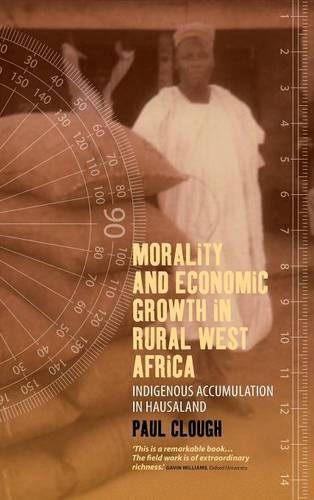Overview
The land, labor, credit, and trading institutions of Marmara village, in Hausaland, northern Nigeria, are detailed in this study through fieldwork conducted in two national economic cycles - the petroleum-boom prosperity (in 1977-1979), and the macro-economic decline (in 1985, 1996 and 1998). The book unveils a new paradigm of economic change in the West African savannah, demonstrating how rural accumulation in a polygynous society actually limits the extent of inequality while at the same time promoting technical change. A uniquely African non-capitalist trajectory of accumulation subordinates the acquisition of capital to the expansion of polygynous families, clientage networks, and circles of trading friends. The whole trajectory is driven by an indigenous ethics of personal responsibility. This model disputes the validity of both Marxian theories of capitalist transformation in Africa and the New Institutional Economics.
Full Product Details
Author: Paul Clough
Publisher: Berghahn Books
Imprint: Berghahn Books
Dimensions:
Width: 15.20cm
, Height: 2.50cm
, Length: 22.90cm
Weight: 0.794kg
ISBN: 9781782382706
ISBN 10: 1782382704
Pages: 468
Publication Date: 01 June 2014
Audience:
College/higher education
,
Postgraduate, Research & Scholarly
Format: Hardback
Publisher's Status: Active
Availability: In Print

This item will be ordered in for you from one of our suppliers. Upon receipt, we will promptly dispatch it out to you. For in store availability, please contact us.
Reviews
This is a remarkable book - The field work is of extraordinary richness. It studies - the core aspects of any rural economy, indeed of any economy: land, labour, credit, markets, investment, inequalities, accumulation - The study is meticulous in its attention to detail and sensitive to the people whom he is studying. The statistical material is richer, more extensive, better grounded, and thus more accurate in its measurements than in any other West African study of which I am aware. The concept which binds the study, 'non-capitalist accumulation', is distinctive and original and will make a new and valuable contribution to future research of rural societies. * Gavin Williams, Oxford University The [author's] period of fieldwork results in an amazingly dense description of economic processes. Quantitative and qualitative data is analysed and presented in a fascinating manner. The chapters on money lending, on labour relations and on trade I rate superb - the theoretical analysis and modeling is highly significant and important. * Michael Bollig, University of Cologne
Author Information
Paul Clough (1949-2019) was Associate Professor of Anthropology at the University of Malta. His D.Phil. from Oxford University was runner-up for the Audrey Richards Prize in 1996, awarded by the International African Institute every two years for the best thesis in any branch of African studies.




